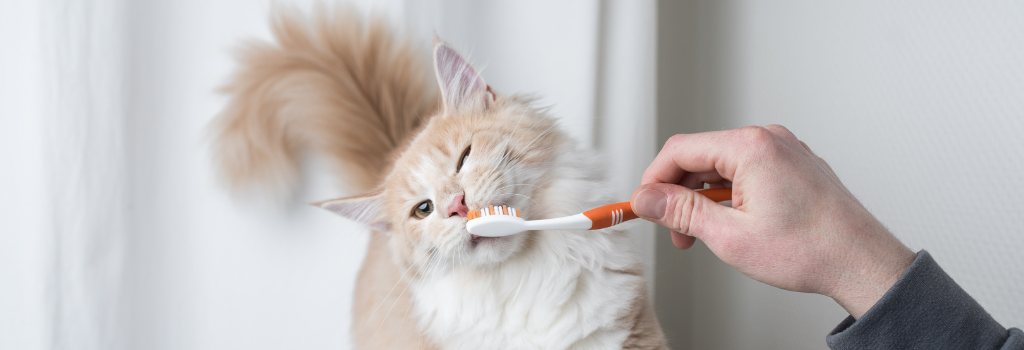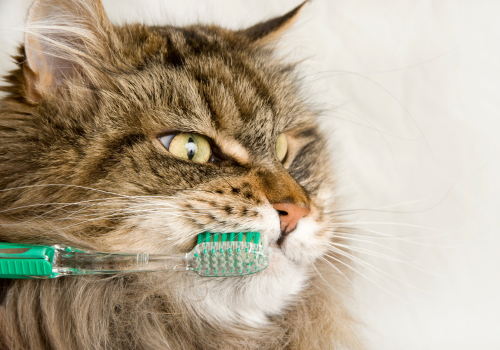Cat Dentistry: What Every Cat Owner Should Know
Dental health is one of the most overlooked aspects of feline care—and we wish it were talked about more often. That’s why we’ve answered the most frequently asked questions about cat dentistry—so you can keep your feline friend healthy, happy, and pain-free for years to come.
What is involved in cat dental care?
Cat dental care starts with a physical exam to check for signs of dental disease. If needed, we’ll recommend a professional dental cleaning under general anesthesia, which may include:
- Full-mouth dental x-rays
- Scaling and polishing
- Fluoride treatment
- Tooth extractions (if necessary)
Why is dental health important for my cat’s overall health?
Dental disease doesn’t just stay in the mouth—it can impact your cat’s entire body. Infected gums and teeth can lead to:
- Pain and reduced appetite
- Bacteria entering the bloodstream
- Heart, liver, and kidney issues
Because cats hide pain so well, dental disease often goes unnoticed until it’s advanced. Regular dental exams are the best way to catch problems early.

What dental care can I do at home?
Home care makes a big difference. Here are a few options:
- Brushing: Start brushing your cat’s teeth with cat-safe toothpaste as early as possible. Even brushing once or twice a week helps.
- Water additives: These can help reduce plaque, though not all cats like the taste.
- Dental treats & toys: Products like dental Greenies and toys with textured grooves help clean teeth through chewing.
- Dental diets: Prescription dental diets offer everyday support with every bite.
Even with the best at-home care, we still recommend an annual professional dental cleaning under anesthesia to address problems below the gumline.
What are signs of dental problems in cats?
Watch for these symptoms:
- Bad breath
- Drooling or blood-tinged saliva
- Pawing at the mouth
- Reduced appetite or weight loss
- Red or inflamed gums
- Chewing on one side of the mouth
- Vomiting or diarrhea
- Behavioral changes (hiding, irritability)
If you notice any of these signs, schedule a dental exam right away.

How do we diagnose dental issues in cats?
We begin with a full physical exam. If we suspect dental disease, we recommend a cleaning under anesthesia. Based on what we find, we may recommend extractions or other treatments to restore comfort and health.
What conditions can result from poor dental health?
Cats can develop:
- Gingivitis (gum inflammation)
- Periodontal disease
- Resorptive lesions (painful cavities where the tooth dissolves)
- Tooth fractures
- Systemic infections affecting kidneys, liver, and heart
Treatment depends on the diagnosis. Gingivitis and tartar buildup may require a routine cleaning. More serious conditions like resorptive lesions or broken teeth often need extractions.
Celebrate Dental Health Month with Us!
Each February, we offer a discount to your cat’s dental cleaning (excluding extractions). It’s the perfect time to prioritize your pet’s oral health! Questions? Ready to schedule a dental exam? We’re here to answer your questions and help your cat feel their best. Call us at (337) 893-8522 to schedule a dental exam or learn more about feline oral health. At Whittington Veterinary Clinic, your cat’s comfort and well-being are our top priorities.
